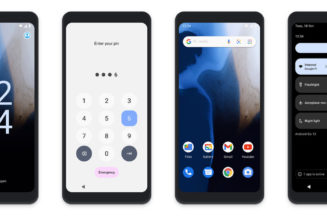
Epic Games just won a temporary restraining order against Apple — at least in part. Effective immediately, Apple can’t retaliate against Epic Games by terminating the company’s Apple developer accounts or restricting use of Epic’s Unreal Engine by developers on Apple platforms.
But in the same ruling, Judge Yvonne Gonzalez Rogers decided that Apple will not be required to bring Fortnite — which it had banned after Epic added an in-app payment system in violation of Apple’s rules — back to the App Store.
“The Court finds that with respect to Epic Games’ motion as to its games, including Fortnite, Epic Games has not yet demonstrated irreparable harm. The current predicament appears of its own making,” Rogers wrote, arguing that Epic “strategically chose to breach its agreements with Apple” and thus disturb the status quo.
But, Rogers argued, maintaining that status quo is also why she’s ruling that Apple can’t cut off access to the Unreal Engine right now. There, it was Apple who “has chosen to act severely” by impacting both third-party app developers, as well as Epic’s reputation, by threatening the Unreal Engine.
“Epic Games and Apple are at liberty to litigate against each other, but their dispute should not create havoc to bystanders,” Rogers wrote.
Originally, Epic claimed Apple had intended to cut off Epic’s developer accounts this Friday, August 28th.
Rogers agrees with Epic that there is “potential significant damage to both the Unreal Engine platform itself, and to the gaming industry generally,” and suggested that Apple would have a hard time arguing that Epic won’t be harmed if Unreal Engine developers abandon their projects because Epic can no longer support them on Apple platforms.
In a hearing on Monday, ahead of the ruling, Judge Rogers had already indicated that she was more swayed by the apparent threat to the Unreal Engine. “I am not inclined to grant relief with respect to the games,” she said at the opening of the hearing, “but I am inclined to grant relief with respect to the Unreal Engine.”
Today’s ruling is limited in scope, meant only to preserve the status quo while the court can hear more detailed arguments concerning a preliminary injunction. That injunction would determine whether Apple can take action against Fortnite, the Unreal Engine, or various other Epic products over the course of the trial. The two parties are expected to file their arguments in the coming weeks, with a full hearing on the injunction scheduled for September 28th.
The court hasn’t settled when it will hear arguments on the merits of Epic’s claims, but it is unlikely to be this year. Asked when they would be prepared to begin trial, Epic’s counsel said they could be prepared within four to six months; Apple suggested a longer discovery period, with the trial beginning in ten months.










